#anorexia nervosa recovery
Text
I'm so sick of pro anas glorifying anorexia by saying how "wonderful" and "lovely" it is to feel empty. This feeling does not last.. there might be a very short "honeymoon phase" with your restrictive ED where you think you're being "strong" and "pure" by starving when you first start losing weight, but it ends.. QUICK. I spent 13 years feeling what they described should make me feel "pure" and "lovely" and I HATED EVERY MOMENT. I was miserable, I developed organ damage, osteopenia, lost a good portion of my hair, my joints and ligaments are destroyed, my face was covered in lanugo, my gums recessed so bad my skull was exposed- clearly that would be painful, and it was- it got so bad I needed expensive, not covered by insurance surgery, which was the beginning of my recovery. Starving is never worth it. Now that I'm in recovery sure I gained weight, but I also gained satiety from food every day multiple times a day (which I can confirm feels better than starving), holidays don't scare me so much anymore, I eat more and exercise less than I have in 13 years and life is so much better. Weight is the least of what I've gained in recovery- I've gained the ability to eat at restaurants, not always know the calories of what I'm eating, a sense of humor (now that I'm not constantly angry/irritable that I feel like shit 24/7), a better relationship with my husband, and all the little joys that food, especially holidays surrounding food, can bring to our lives. If you reach your "ugw" and get diagnosed with anorexia nervosa, it is not an accomplishment. It is a sickness that will destroy your family, other relationships, body, and mind. Recovery or death are the only ways out of anorexia, and as I've recently learned through trial and error, I do not, in fact, want to die. I want to live- to wake up next to the love of my life and my cats, to have at least 3 meals a day so I'm never running on empty; it's amazing. Recovery is worth it, always- anorexia never is. So stop promoting it as some sort of badge of honor; it's not. Recover while you can, because 1/5 of anorexics die- either by starvation or suicide. I've been closer than anyone ever should be to dying of both. Being thin is not the most important thing in life, it really doesn't matter as much as the sickness in your mind convinces you it does. So get better, before your body and mind are so ravaged by your ED that there's no way out anymore.
108 notes
·
View notes
Text
every time i start missing how my body looked when i had an ed i remember i was scared to eat TOAST 💀💀 like i deadass had NIGHTMARES about eating toast w butter and jam. are u hearing this i was LOSING MY SHIT over TOAST bro 😭😭😭 im not going back to that are you kidding
#ed#tw ed#disordered eating#ed recovery#eating disorder recovery#disordered eating recovery#recovery#ana recovery#mia recovery#anorexia recovery#bulimia recovery#anorexia nervosa#anorexia#bulimia#you deserve recovery#you deserve to be happy#jack's recovery experience
20 notes
·
View notes
Text
What's up my guys? ヾ(^ω^*)
Long time no see. Still alive but did put all my energy into changing my life.
So I'm practically in the middle of moving to my new partner. Away from the city.
So I'm doing pretty ok with my ed at the moment. I'm at a really good weight keep going even though there are still this shitty thoughts. Guess that will hunt me forever.
But I try to ignore it.
I also got a job today. I'm just a temporary helper at the moment but this is still amazing after 2 ½ year being sick and not working.
Fotos are from Halloween but that's the latest I got... :3
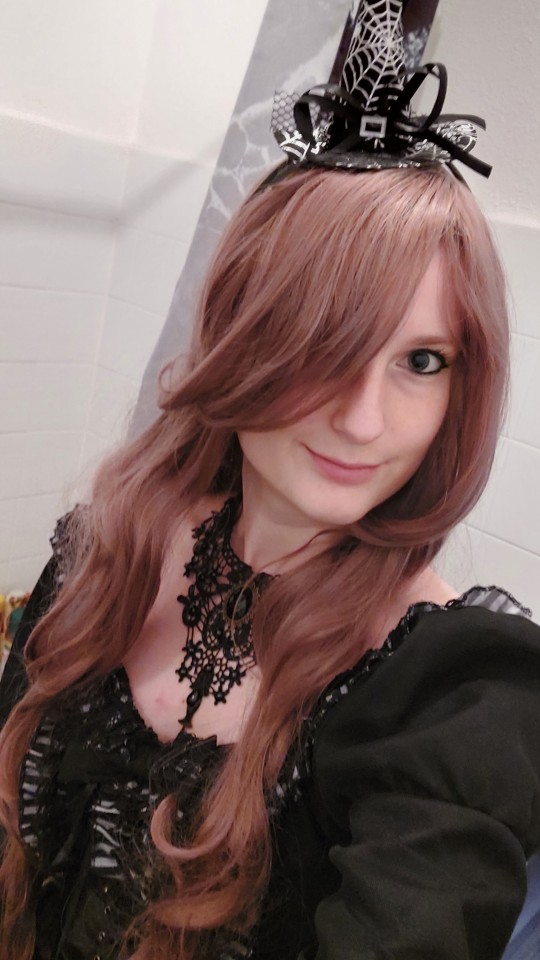
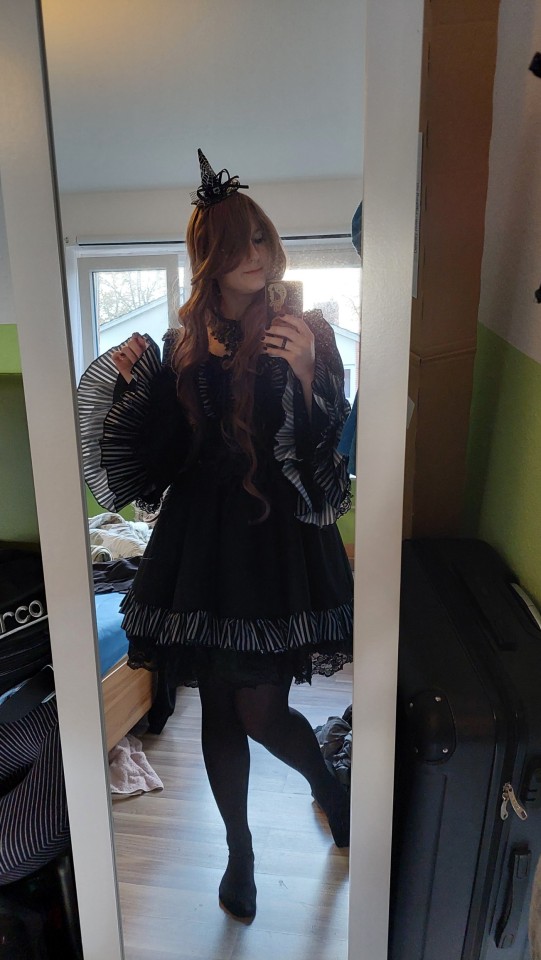
Also my love for my pet snails grew and now I have 5 with a sixth one on the way.
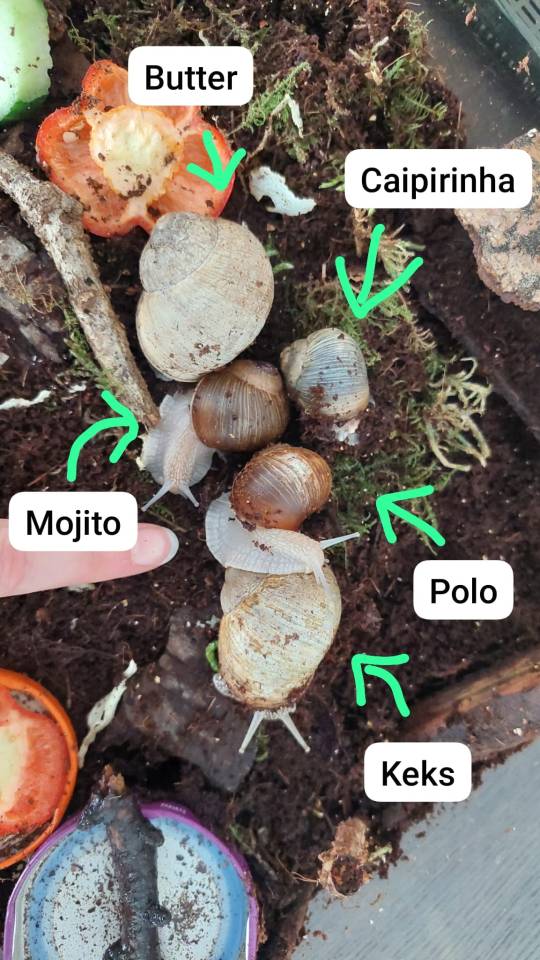


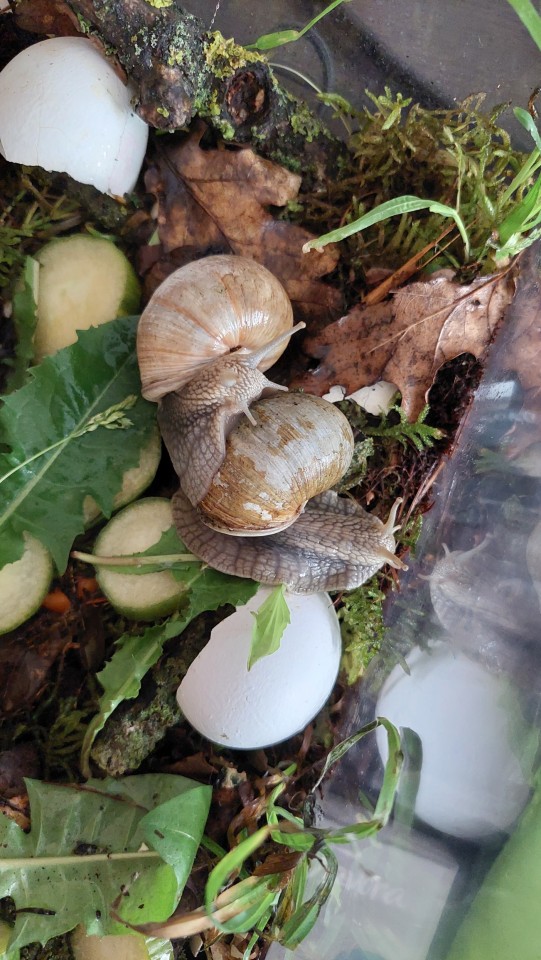
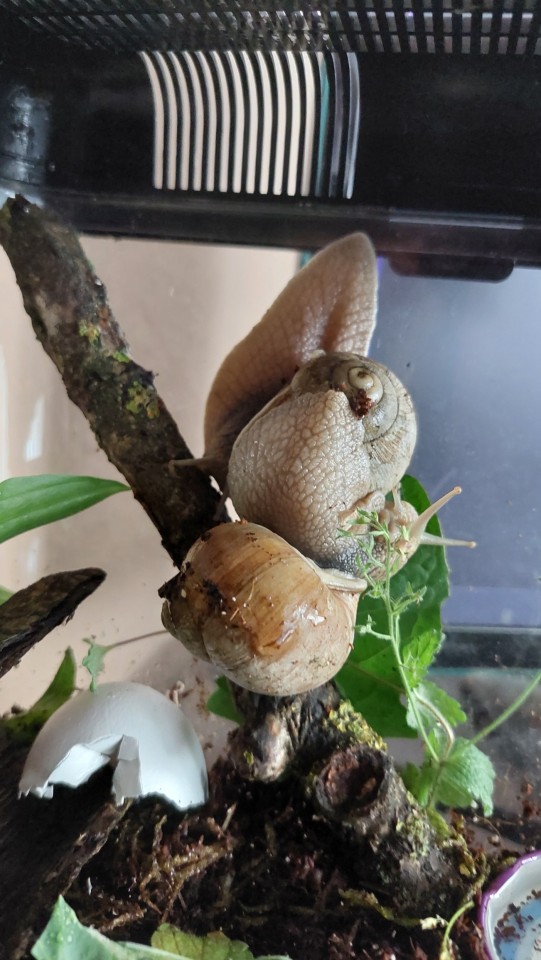
I got still a lot financially issues... which is pretty bad for someone with an ed... but when the moving is over and I finally live here on the countryside I can relax a bit.
Also I apply for a new apprenticeship. So I have a lot of talking with different people to do. I hope I get a good one here.
Anyway. I hope you all doing fine.
#ed related#mental health memes#spellcrafting#ed#ed recovery#adult ed#anorexik#anorexia nervosa#anorexic#anorexia#bulimik#bulimic#bulimia#snail#snail pet#me#pet#snail love#witch costume#being borderline#borderline personality disorder#bpd#ed therapy#depressive#depression#depressed#ed journal#journal#journey#ed journey
7 notes
·
View notes
Text
I’m very angry about this Taylor Swift fiasco.
This is very upsetting because now people are equating the symptoms of an eating disorder with prejudice. Fatphobia isn’t an actual phobia or anxiety disorder. Fatphobia isn’t a mental illness. The actual phobia, which some people with eating disorders do have is obesophobia (or pocrescophobia). Fatphobia doesn’t have anything to do with fear or anxiety, it has to do with bias.
Let’s look at the diagnostic criteria for anorexia nervosa, as defined in the DSM-V:
Restriction of energy intake relative to requirements, leading to a significantly low body weight in the context of age, sex, developmental trajectory, and physical health. Significantly low weight is defined as a weight that is less than minimally normal or, for children and adolescents, less than minimally expected.
Intense fear of gaining weight or of becoming fat, or persistent behavior that interferes with weight gain, even though at a significantly low weight.
Disturbance in the way in which one’s body weight or shape is experienced, undue influence of body weight or shape on self-evaluation, or persistent lack of recognition of the seriousness of the current low body weight
Now let’s look at the criteria for bulimia nervosa:
Recurrent episodes of binge eating. An episode of binge eating is characterized by both:
Eating in a discrete period of time (e.g. within any 2 hour period), an amount of food that is definitely larger than what most individuals would eat in a similar period of time under similar circumstances
A sense of lack of control over eating during the episodes (e.g. a feeling that one cannot stop eating or control what or how much one is eating.
Recurrent inappropriate compensatory behaviors to prevent weight gain, such as self-induced vomiting; misuse of laxatives, diuretics, or other medications; fasting; or excessive exercise.
The binge eating and inappropriate compensatory behaviors both occur, on average, at least once a week for 3 months.
Self-evaluation is unduly influenced by body shape and weight.
The disturbance does not occur exclusively during episodes of anorexia nervosa.
So here we can see that there’s shared characteristics:
Preoccupation with one’s own weight or shape
Self-evaluation tied to weight or shape
Inappropriate means to prevent weight gain
Fear of gaining weight or becoming fat
Notice how none of the diagnostic criteria includes anyone other than the person experiencing these symptoms. Eating disorders are not about other people. More often than not the same people who hate themselves, think they’re disgusting, and think they’re lazy because of their eating disorder have no issue with other people’s weight. My two best friends, one I had in middle school and one in high school, both suffered from anorexia. And I would feel so bad about myself because I was fat. I would look at them with envy. But any time I said anything negative about my weight, I was met with “you look fine to me” and “don’t talk about yourself like that.”
And this is because anorexia and bulimia are illnesses rooted in self-perception. They can be exacerbated by a culture that presents a thin-ideal, promotes dieting, and devalues people who are overweight or obese, but that doesn’t change the fact that people with anorexia or bulimia (many of which are objectively underweight) frequently see themselves larger than they are. Eating disorders aren’t just about what society deems beautiful either, eating disorders are a “perfect storm” mental illness—they occur in a cyclone of genetic predisposition, personality, and life circumstances. There is no one cause of an eating disorder.
It’s great to have conversations about the morality we assign to certain bodies and the ideal body type that society presents. But that’s not how the conversation was started. A lot of this conversation is about whether someone’s art is allowed to accurately reflect their lived experience.
It is categorically irresponsible to treat experiencing an eating disorder as a moral failing. Being fat is not a moral failing, it says nothing about a person’s worth. And neither is experiencing a mental illness. Expressing the relationship between you and your eating disorder, and the shame, guilt and aim for perfection that comes with it is okay.
If Taylor Swift went on television and said, “Every time I would weigh myself, I would look at the scale and the number didn’t matter; all I saw was fat,” no one would say anything. Because they would understand this as her describing her own lived experience with an eating disorder. The very common thought pattern present in a lot of people with eating disorders: the number does not actually matter. But she expresses this sentiment through a visual medium and suddenly it’s not okay. Now it’s a commentary on other people’s bodies? Now it’s fatphobic?
It's not. It’s still describing her own lived experience. And if that depiction is triggering to you—either as a fat person or as someone recovering from an eating disorder—that is fine. But just because it triggers you doesn’t mean that Taylor needs to censor her own eating disorder recovery journey for the comfort of others. It’s very disappointing that we’ve reached a point where people who have an experience with mental illness can’t be honest and open about their thoughts and feelings because people make it about themselves.
It's not about you. It’s not a commentary about your body. Taylor’s eating disorder isn’t about you or your body. Her mental illness isn’t about you or your body. Stop making it about you.
There are of course other eating disorders. I talk about AN and BN for brevity and clarity, because I didn’t want a post filled with a dozen caveats that explain how it may be different for a specific eating disorder.
#taylor swift#eating disorders#anorexia#bulimia#anorexia nervosa#eating disorder recovery#ED recovery#antihero#anti hero#tw: eating disorders#*original#*entertainment industry#long post
22 notes
·
View notes
Text

#sinestetica-mente#anorexia#eating disorder#bulimia#recovery#eating disorder recovery#mental health#mental illness#anorexia recovery#anorexia fighter#anxiety#ana#food#ed warrior#binge eating#anorexia nervosa#fear food#eating disorders
4 notes
·
View notes
Text
And that's the thing with recovery from any type of addiction. You want to want to recover but you don't want it. You don't want to lose your drug, whatever that is.
4 notes
·
View notes
Text
Ⳋ 𝆬 ﹙ recovery ﹚ . 🐰⃝
⠀⠀꒰ and ꒱
⠀ ︶ ₊ 𝆬 relapse


#dolls#doll#dec141998#dollcore#coquette#recovery#relapse#skeleton#trigger warning#ed#eating disorder#anorexia#bulimia#anorexia nervosa#dollette#doellette#bizarre#dusty#attic#softcore#traumacore#trauma
6 notes
·
View notes
Text
i can’t save us, my Atlantis, we fall.
#borderline#fat#psycho#lgbt#bulimia nervosa#sad#cutter#hate my body#bulimia#mental#selfharm#disorder#bones#suicide#love#anorexia#recovery#thick
10 notes
·
View notes
Text
Critical incidents in anorexia nervosa
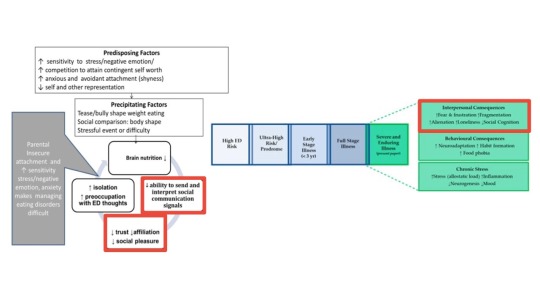
Several theoretical models of anorexia nervosa have postulated that difficulties in social cognition and social functioning play a key role in perpetuating the illness. These models have proposed that these difficulties increase isolation and conflict in relationships, thus creating more space for the illness or reliance on the illness-related behaviours to cope. However, there is some uncertainty regarding what these difficulties might look like and how they should or could be measured and evaluated. All of this is crucial not only for the development and assessment of interventions, but also to gain a more comprehensive picture of the illness beyond physiological factors such as body mass index.
To try and address this gap, we conducted a qualitative, online study asking 34 people with lived experience of anorexia nervosa about important positive and negative life events. We used the critical incident technique to gain insight into these events by asking open-ended questions about what led to the event, the event itself, and the consequences of the event. We then looked for common themes and differences in the written answers to gain insight into social interactions and cognition in anorexia nervosa.
Positive critical events

Participants' stories about important positive events were largely characterised by a focus on others and the event. These events were to do with celebrating important milestones such as graduations and weddings. Shifting focus outside of oneself and focusing on the ‘big picture’ has been previously found to help reduce social anxiety. It may be that such attentional shifts allow the person to at least momentarily break away from excessive scrutiny of one’s own perceived flaws, shame, and negative biases including a tendency to exaggerate others’ negative feelings towards oneself. Previous qualitative work has found that shifting thinking more towards the ‘big picture’ and away from the negative self-scrutiny may be a key component in supporting recovery. Such moments of celebration may thus be important to foster optimism and hope in anorexia nervosa.
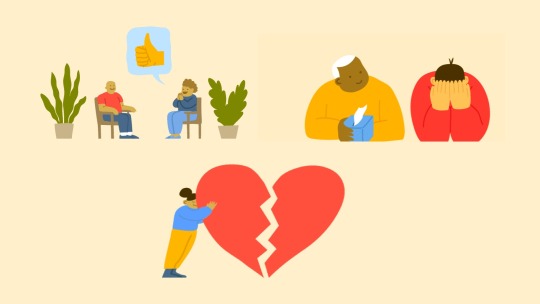
When recounting crucial positive events, some participants demonstrated some negative biases and expectations. What made these moments positive, however, was that the negative expectations were met with positive actions from others. These events could be interpreted as so-called corrective experiences, in which a person challenges their own biases resulting in a new, often more positive way of viewing others and, importantly, themselves. Corrective experiences can act as reminders of one’s own inherent value as a person, which in turn can help in breaking away from unhelpful negative thinking styles. They also often go beyond words of encouragement as actions are given centre stage. Therefore, it may be that corrective experiences may be a useful tool to challenge negative biases and shame.
Difficult critical events

Difficult critical life events largely included stories of conflict and loneliness. Regardless of whether these events occurred against the backdrop of the eating disorder or not, frequently others’ negative or ambivalent reactions were taken as evidence that other people did not truly care. Compounded by past traumatic and painful experiences, this further cemented participants' pre-existing negative expectations of others and fuelled the feeling that there was no point to reach out because no one would be there to help if they did. Previous work has also documented that people with anorexia nervosa often feel unheard and misunderstood, which can harm social relationships and therapeutic alliance. When feeling alone and unheard, people often fall intentionally silent, and reaching out can feel impossible and futile. It is important to note, however, that these negative expectations were frequently the very same ones that were positively challenged when participants told us about important positive events. Our findings suggest that although negative biases and withdrawal as a result of difficult experiences are common in anorexia nervosa, many are open to having these thinking styles challenged through positive actions by others. This highlights the need to reach out to a person who is struggling rather than waiting for the struggling person to reach out and ask for help.
You can find the full published article here:
#eating disorders#anorexia nervosa#eating disoder recovery#it's not as simple as just eating#disordered eating mention#eating issues#anorekix#psychology#social psychology#research#mental health#ana recovery#ed recovery
12 notes
·
View notes
Text
Some Things That Have Happened After 18 Months Of Recovery
~10kg heavier (much of which is muscle)
eyes focus better
more stomach fat, but not much anywhere else since thats just where my body stores it
lil back rolls when i twist to the side
no longer freezing cold all the time
nails are thicker and grow faster
hair no longer falls out
not exhausted doing anything more intense than sitting down
interests unrelated to food are back
able to discern food opinions i actually have from what my ed was telling me/what my body was desparate for
Some Things That Have Not Happened As A Result
people show less interest in me
people value me less
people think im greedy
i lose control around food
i stop exercising
i gain weight exponentially
i become ugly/people think im ugly
#ed recovery#jack's recovery experience#eating disorder recovery#disordered eating#disordered eating recovery#anorexia recovery#ana recovery#mia recovery#anorexia nervosa#ana nervosa#bulimia recovery#bulimia#ednos#you deserve recovery#you deserve to be happy
3 notes
·
View notes
Text
So... I got invited to a weeding in July which is amazing and I'm so freaking happy for both.
It's my father in law and his girlfriend.
So I decided I need a fitting dress. I love gothic and renaissance stuff... So I decided on something special but this time I ordered it in navy blue and not black:

I was like: "Freaking hell... You look so fat after recovering from your ed..."
I was mad. Seriously. But you know what. Screw my thoughts and my bodydismorphia. I gonna wear this bc I want to and I think it's gorgeous!
I got curvy after recovery but I was before.
So why the hell should I hate myself for this. I had no life on eating nothing and purging. Now I got a new home,a job and love.
Sometimes I really need to remember to accept what my body is now. It's hard and I don't know if it will eber get better... but that is the same thought I had underweight until I recovered. So maybe... maybe also this will change.
#ed related#ed#ed 🦋#eating disorder recovery#eating disorder#anorexia nervosa#anorexic#anorexia#buliima#bulimic#bulimia#bulimyc#body dysmorphia#mentally ill#mental instability#mental disorder#ed situation#adult ed#ed struggles#ed reality#ed recovery#ed rant#me#new dress#anorexik#anor3c1a#being myself#diary#ed diary#feeling insecure
3 notes
·
View notes
Text

#personal#self harm#self harm tw#self harm//#self harm/#self h@rm#hospitalized#hospital#anorexia tw#anorexia#anorexia nervosa#anorexia recovery#eating disorder tw#eating disorder recovery#eating disorder#ICU#sepsis#death#ng tube
12 notes
·
View notes
Text
I have always been on the higher end of the spectrum, mainly due to a binge eating disorder. My highest weight ever recorded was 242.5 lbs. Right before i recovered from ana, my lowest weight was 152 lbs. I lost 90lbs over the span of like a year but in reality i lost 80lbs in 5 months and the last ten over time. My goal weight (initially) was 165, then 155. I had made it. But i couldn't stop and my goal weight kept getting lower. 145, 130, 120. I never made it that low but god did i want to.
I'm 175 now after almost 2 years of recovery. I eat normal meals, i can even eat my fear foods. I can participate in social events without fearing the food and i have energy to live properly and enjoy sports. But i hate my body and my weight. Is this how it works? Is the body positivity community right? Do i just need to accept the body that i have? Or am i already slipping back into old habits
3 notes
·
View notes
Text
Understanding Anorexia Through Science 🧠💔

Hey everyone, let's have a serious conversation about anorexia, a complex and potentially life-threatening eating disorder. It's crucial to shed light on this topic and understand it from a scientific perspective. 🌟💬
Psychological Factors: "Anorexia is not just about food; it's a psychological disorder," explains Dr. Cynthia Bulik, a leading expert in eating disorders. "Individuals with anorexia often have distorted perceptions of their bodies and intense fears of gaining weight. The keyword is not about vanity; it's about deep-seated emotional struggles." 💭❌
Biological Influences: Dr. Walter Kaye, a psychiatrist, highlights the biological factors that contribute to anorexia. "There's growing evidence that genetics play a significant role in the development of anorexia," he says. "Certain genetic variations may predispose individuals to the disorder, making them more vulnerable to its onset." 🧬🔍
Neurological Changes: "Anorexia affects the brain in profound ways," notes Dr. Guido Frank, a neuroscientist. "Brain imaging studies have shown alterations in brain structure and function in individuals with anorexia. These changes can impact mood, appetite regulation, and decision-making processes." 🧠📊
Social Pressures: Dr. Pamela Keel, a psychologist specializing in eating disorders, emphasizes the role of societal pressures in the development of anorexia. "Cultural ideals of thinness, coupled with social media influences, can contribute to body dissatisfaction and drive disordered eating behaviors," she explains. "The keyword can feel like a constant battle against impossible standards." 👩💻📱
Treatment Approaches: "Recovery from anorexia is possible, but it requires comprehensive treatment," says Dr. Daniel le Grange, an expert in family-based therapy. "Combining medical, nutritional, and psychological interventions is key to addressing the complex nature of the disorder and supporting long-term recovery." 🩺💪
#anorexia#anorexia nervosa#anorexia story#anorexic#anorexia recovery#anorexia o que é#anorexia fotos#anorexia vômito#anorexia bulimia#signs of anorexia#anorexia relapse#anorexia awarness#eu venci a anorexia#anorexia e bulimia#anorexia sintomas#anorexia short film#anorexia resources#efeitos da anorexia#living with anorexia#what causes anorexia#anorexia and bulimia#anorexia depoimento#anorexia documentary
1 note
·
View note
Text
Today's Saturday so I'm getting drunk and not taking pictures of my food so whatever. No one cares about this side blog anyway, and I need a "medicinal" release. Recovery is fucking hard and getting drunk once a week helps... Not to suggest drinking to people, especially underage people, but I need an escape at least once a week so judge me all you want but I'm just trying stay alive.
0 notes
Text
Eating Disorders and Hair Loss
Eating Disorders and Hair Loss
The symptoms of anorexia and the disorder of binge eating are among the eating disorders that frequently cause hair loss as a side effect. In addition to having an impact on a person’s emotional and physical well-being, these conditions can also cause a variety of physical symptoms, such as hair loss. We will examine how eating disorders can cause hair loss as well…
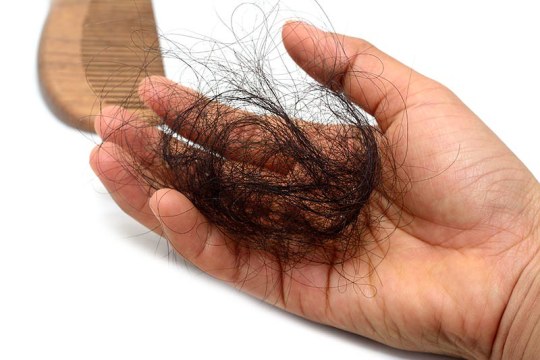
View On WordPress
#Anorexia nervosa and hair loss#Bulimia and hair thinning#Causes of hair loss in eating disorder patients#eating banana benefits#Eating Disorders#eating during pregnancy#Effects of malnutrition on hair#fast weight loss#Hair loss and eating disorders#Hair loss prevention during eating disorder treatment#Hair regrowth in recovery from eating disorders#healthy lifestyle#healthy tips#Nutritional deficiency and hair health#Psychological impact of hair loss in eating disorder recovery#weight loss diet
1 note
·
View note